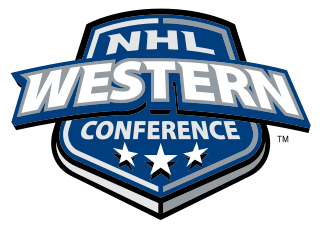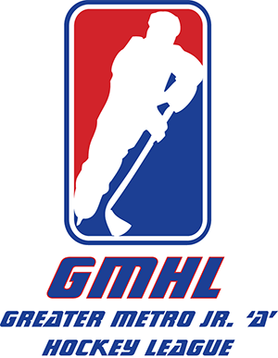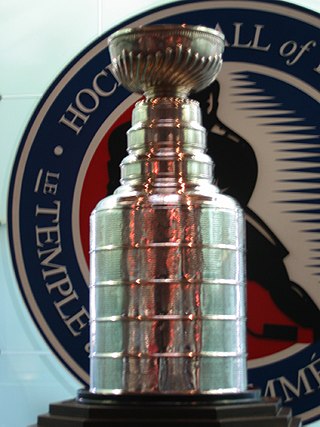
Paintball is a competitive team shooting sport in which players eliminate opponents from play by hitting them with spherical dye-filled gelatin capsules called paintballs that break upon impact. Paintballs are usually shot using low-energy air weapons called paintball markers that are powered by compressed air or carbon dioxide and were originally designed for remotely marking trees and cattle.

The Voyageurs Cup is the domestic trophy for professional soccer in Canada, awarded to the best men's and women's clubs in the country.

The Canadian Junior Football League (CJFL) is a national Major Junior Canadian football league consisting of 19 teams playing in five provinces across Canada. The teams compete annually for the Canadian Bowl. Many CJFL players move on to professional football careers in the Canadian Football League (CFL) and elsewhere.
The 1981–82 NHL season was the 65th season of the National Hockey League. The William M. Jennings Trophy made its debut this year as the trophy for the goaltenders from the team with the fewest goals against, thus replacing the Vezina Trophy in that qualifying criteria. The Vezina Trophy would thereafter be awarded to the goaltender adjudged to be the best at his position. The New York Islanders won their third straight Stanley Cup by sweeping the Vancouver Canucks in four games.

The Montreal Xtreme were a women's soccer club based in Montreal, Quebec, Canada. They played only the 2004 season in the W-League. The team played its home games in Soccerplexe Catalogna in Lachine, Quebec. The team's colours were blue and white. The team folded after the 2004 season.

The Western Conference is one of two conferences in the National Hockey League (NHL) used to divide teams. Its counterpart is the Eastern Conference.

The Greater Metro Junior A Hockey League (GMHL) is a Canadian developmental junior ice hockey league. The league has primarily had teams in the Greater Toronto Area, Central Ontario, Northeastern Ontario, and Quebec. In 2019, they added three teams from Alberta.
Paintball is played with a potentially limitless variety of rules and variations, all of which are specified before the game begins. The most basic of all game rules is that players must attempt to accomplish a goal without being tagged with paintballs. Generally paintball is divided into either its original incarnation woodsball, or the small arena-based and tournament de facto speedball. Amongst these paintball game types, variations of basic rules can be played.

The 1984 Stanley Cup playoffs, the playoff tournament of the National Hockey League (NHL) began on April 4, after the conclusion of the 1983–84 NHL season. The playoffs concluded on May 19 with the Edmonton Oilers defeating the four time defending champion New York Islanders 5–2 to win the Stanley Cup Finals four games to one, the franchise's first Stanley Cup.

The 1981 Stanley Cup playoffs, the playoff tournament of the National Hockey League (NHL) began on April 8, after the conclusion of the 1980–81 NHL season. The playoffs concluded on May 21 with the champion New York Islanders defeating the Minnesota North Stars 5–1 to win the final series four games to one and win the Stanley Cup.

The National Ringette League (NRL), (French: Ligue Nationale de Ringuette, LNR), is the premier sports league for the sport of ringette in North America and Canada's national league for elite ringette players aged 18+. The NRL is not a feminized variant of a more well-known men's league or sport like professional women's ice hockey or bandy. This is due to the fact that one of ringette's distinctive features is that all of its elite players are girls and women. The NRL is semi-professional and operates as a showcase league for ringette in North America.
The 2005 W-League Season is the league's 11th.
The following is a complete history of organizational changes in the National Hockey League (NHL). The NHL was founded in 1917 as a successor to the National Hockey Association (NHA), starting out with four teams from the predecessor league, and eventually grew to thirty-two in its current state. The NHL has expanded and contracted numerous times throughout its history, including in 1979 when four teams came over from the World Hockey Association (WHA).
The Gridiron Developmental Football League (GDFL) is a low-level american football minor league based in Memphis, Tennessee, using the franchise model.
The 1987 National Soccer League season was the sixty-fourth season under the National Soccer League (NSL) name. The season began in early May 1987 and concluded in early October 1987 with the NSL Championship final where Toronto Italia defeated London Marconi. Toronto would secure a league treble by winning the NSL Ontario Cup against Windsor Wheels and claiming the NSL Canada Cup from St. Léonard-Corfinium of the Quebec National Soccer League (LNSQ). On the other hand, Windsor became the regular season champions by finishing first in the standings. As a result, Windsor would travel to Montreal, Quebec to face the LNSQ league champions Sherbrooke Univestrie, and would win the NSL Canadian Championship.

The COVID-19 pandemic has caused disruption to ice hockey across the world, mirroring its impact across all sports. Across the world and to varying degrees, events and competitions have been cancelled or postponed.








